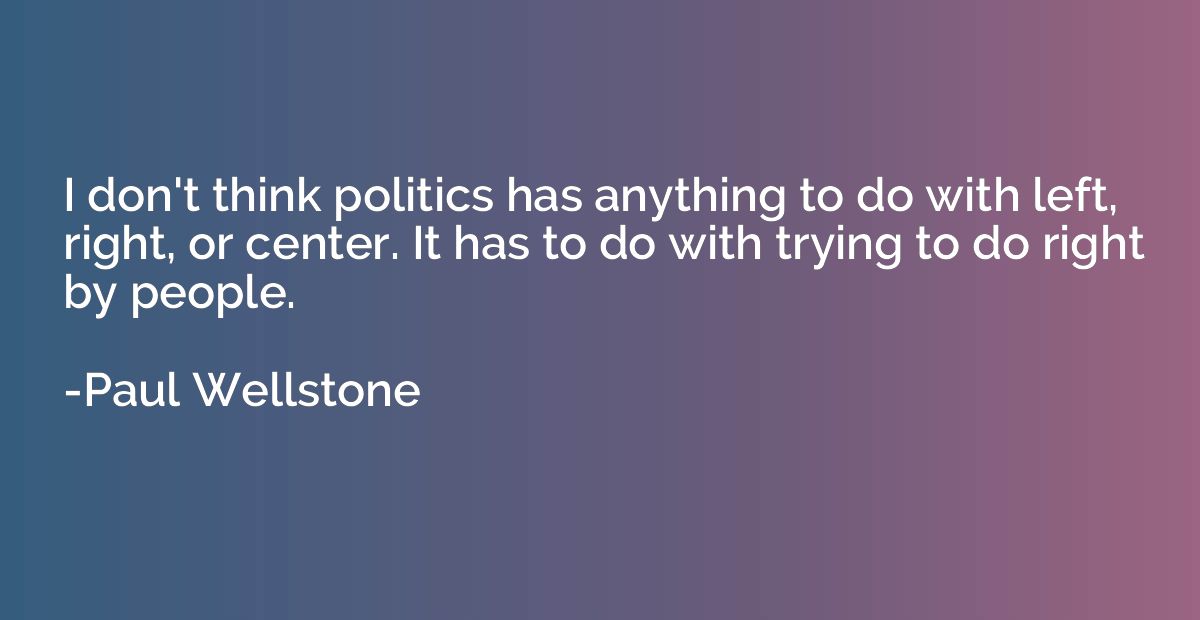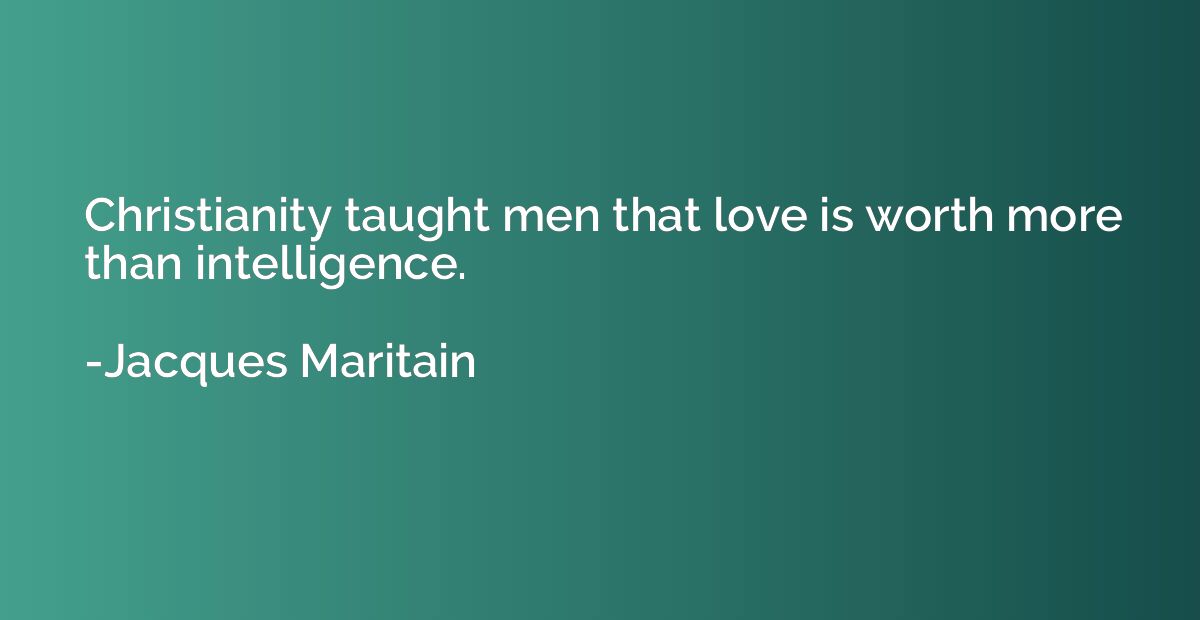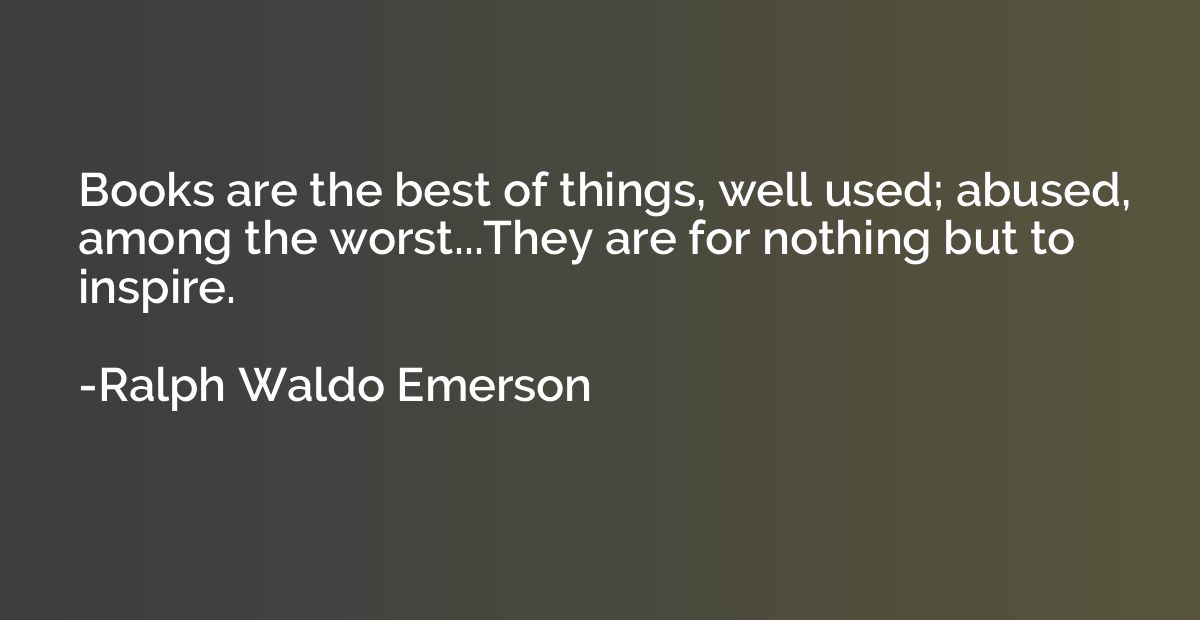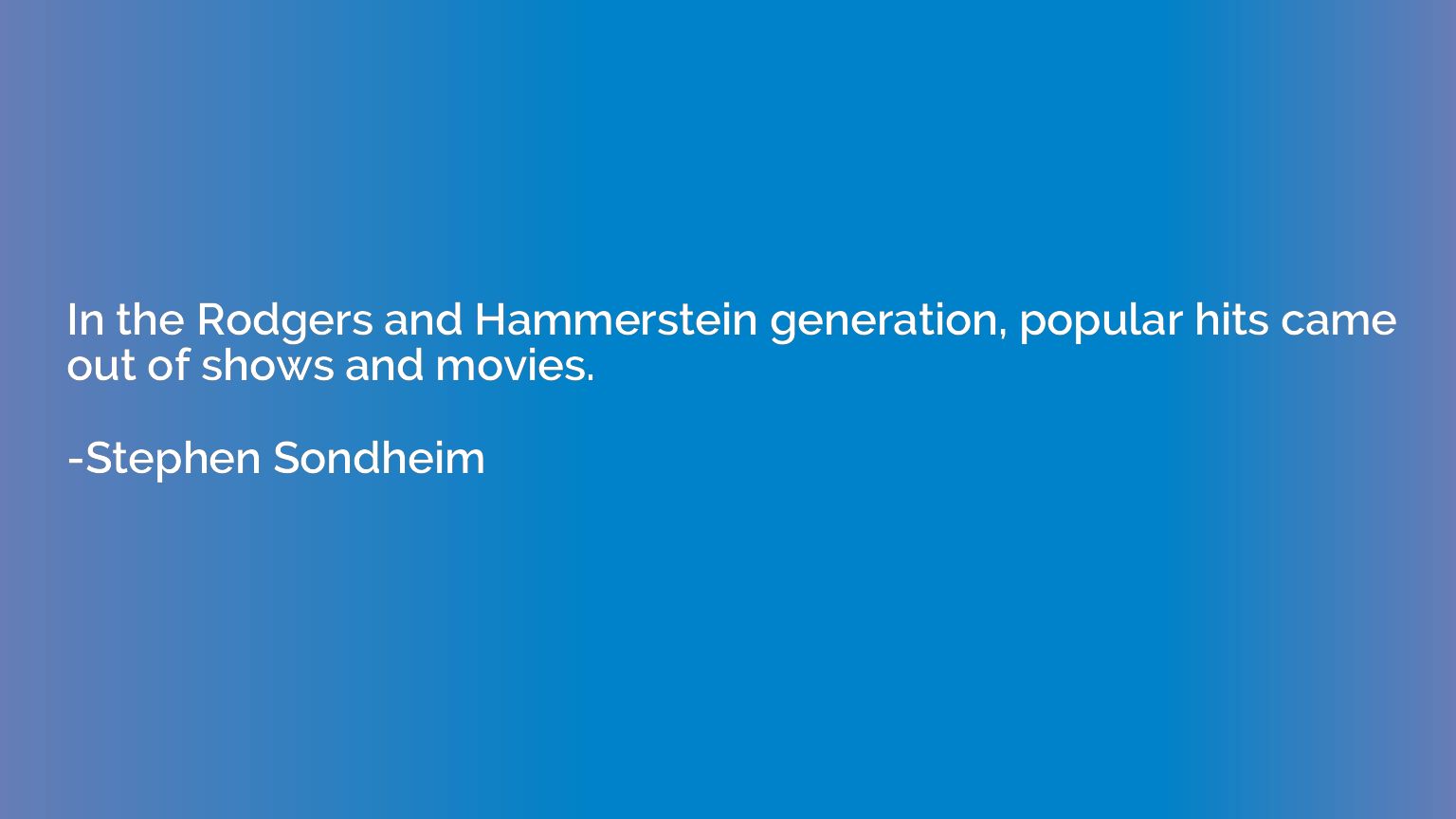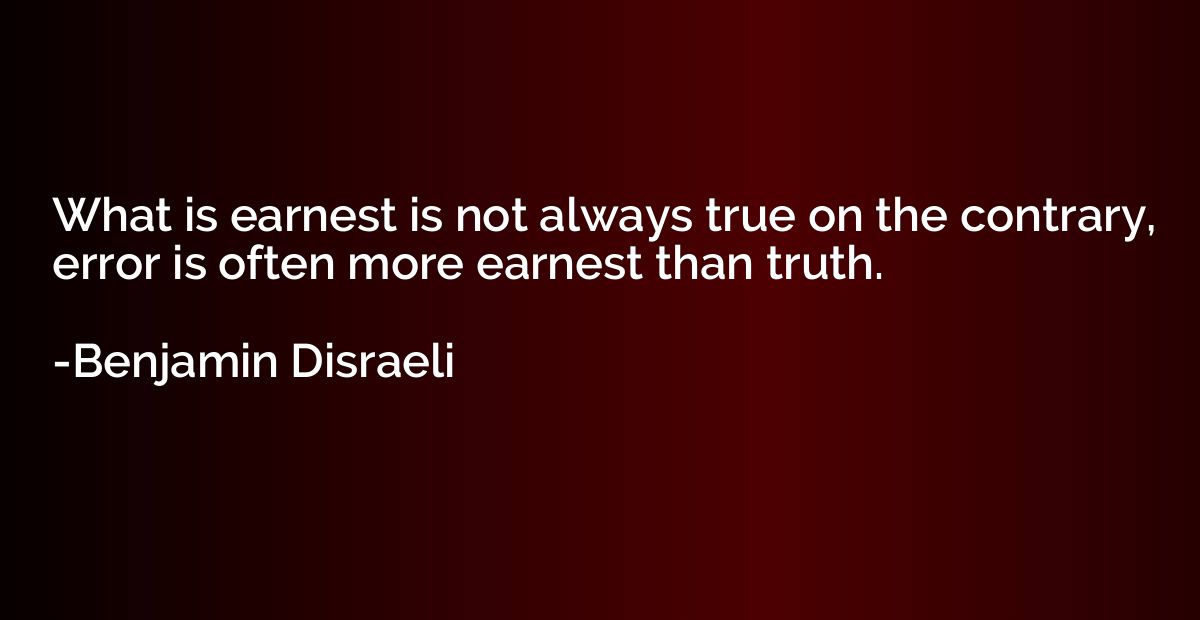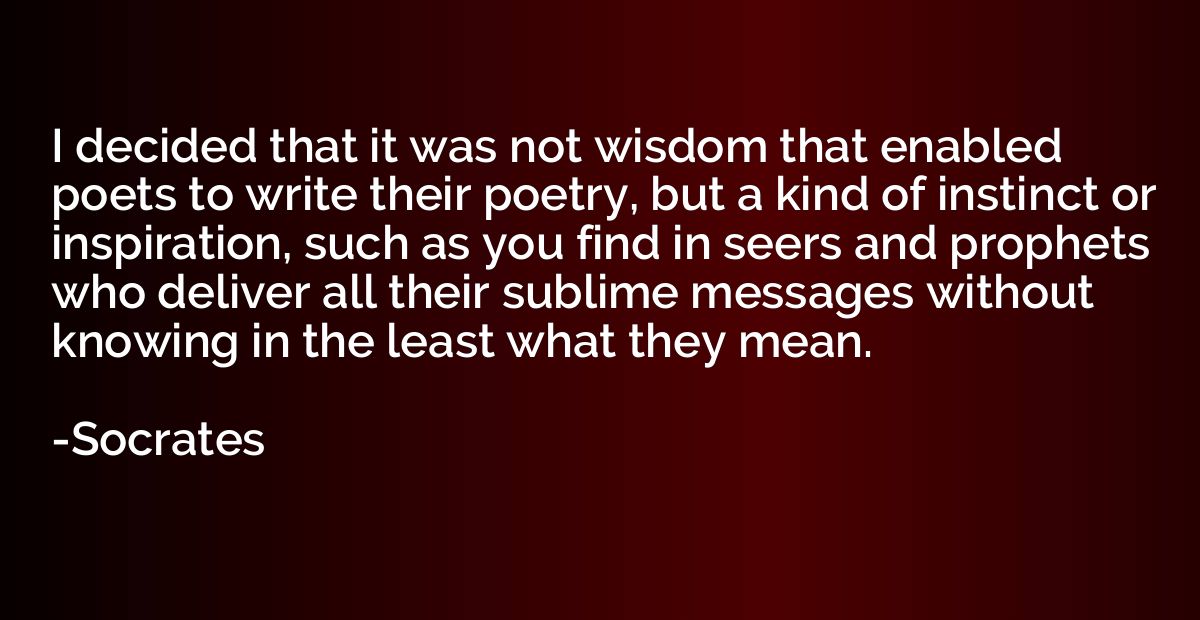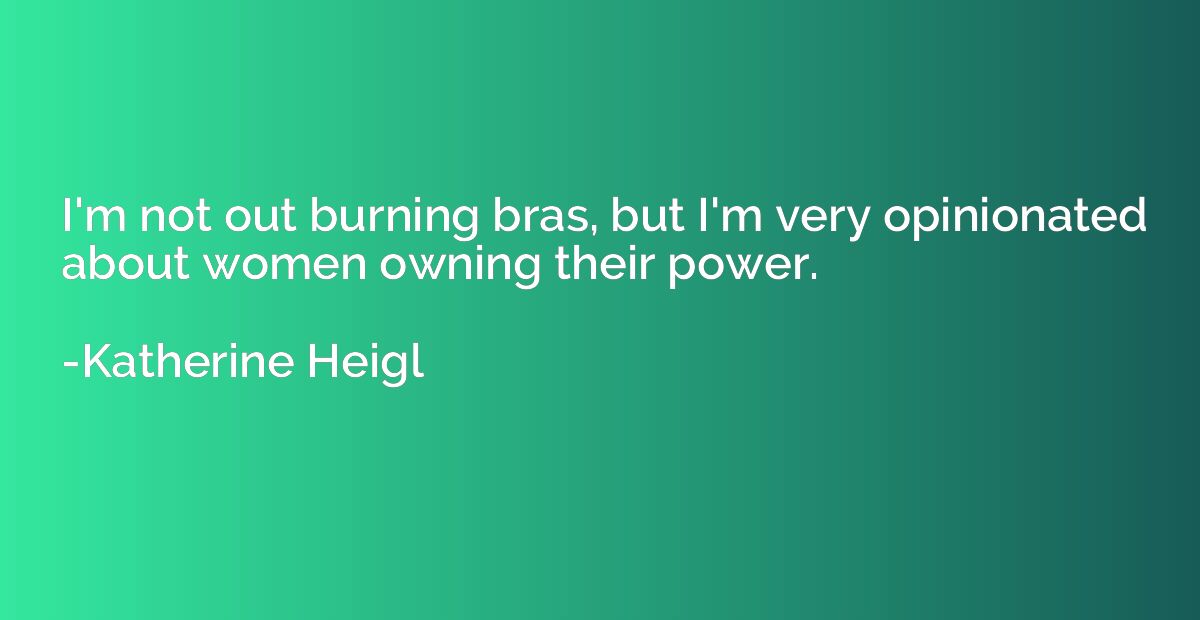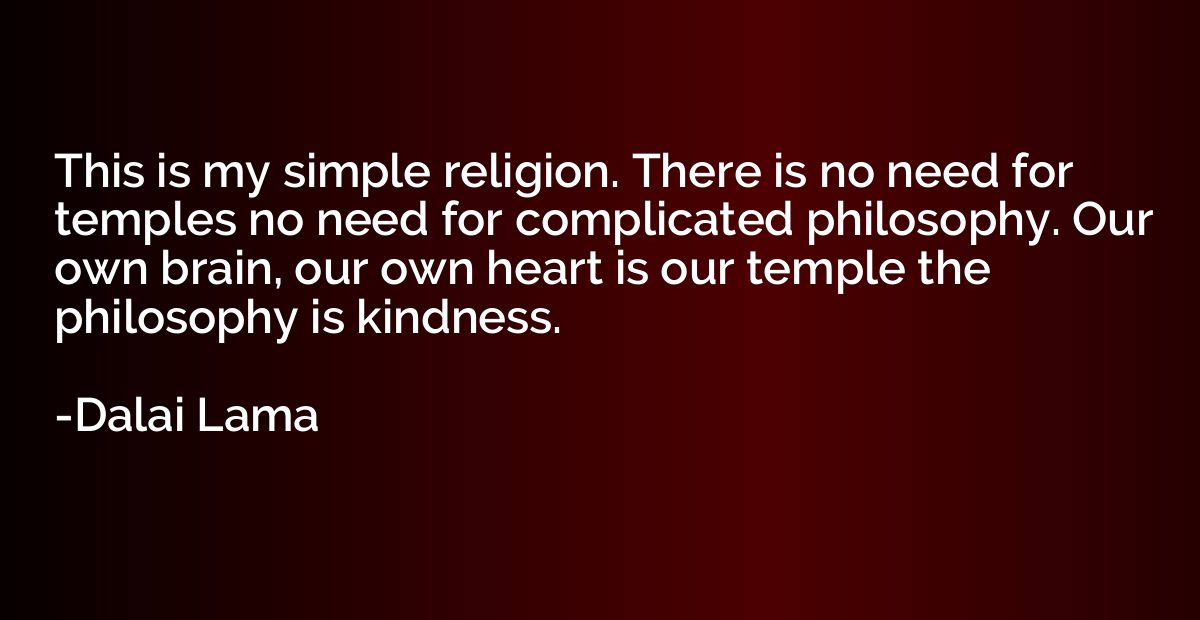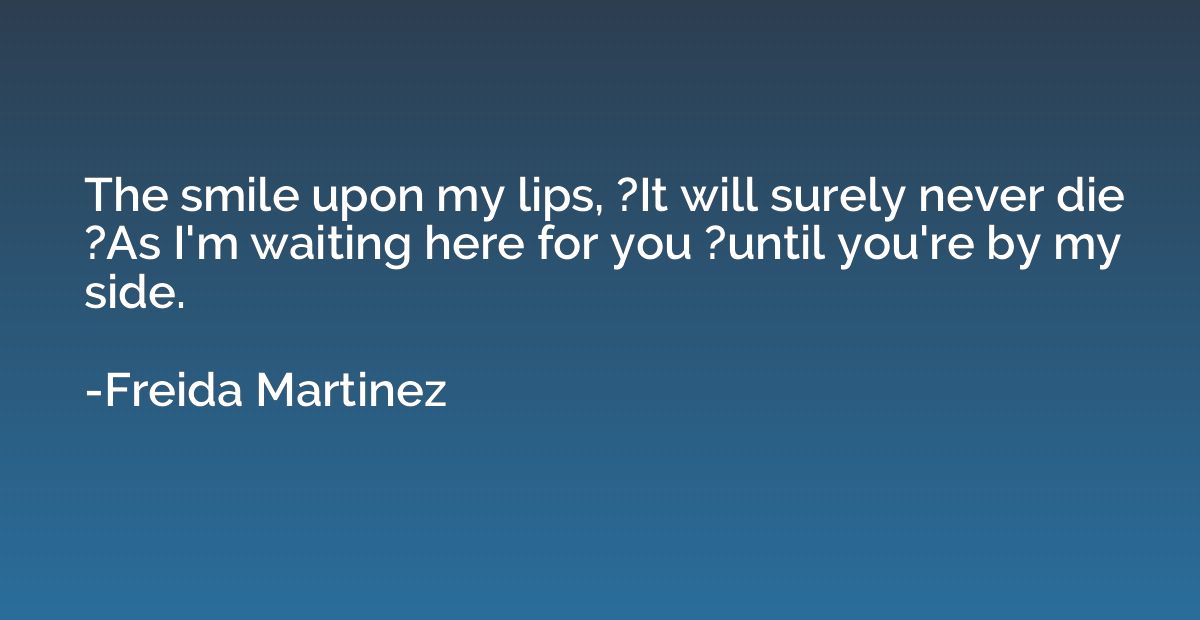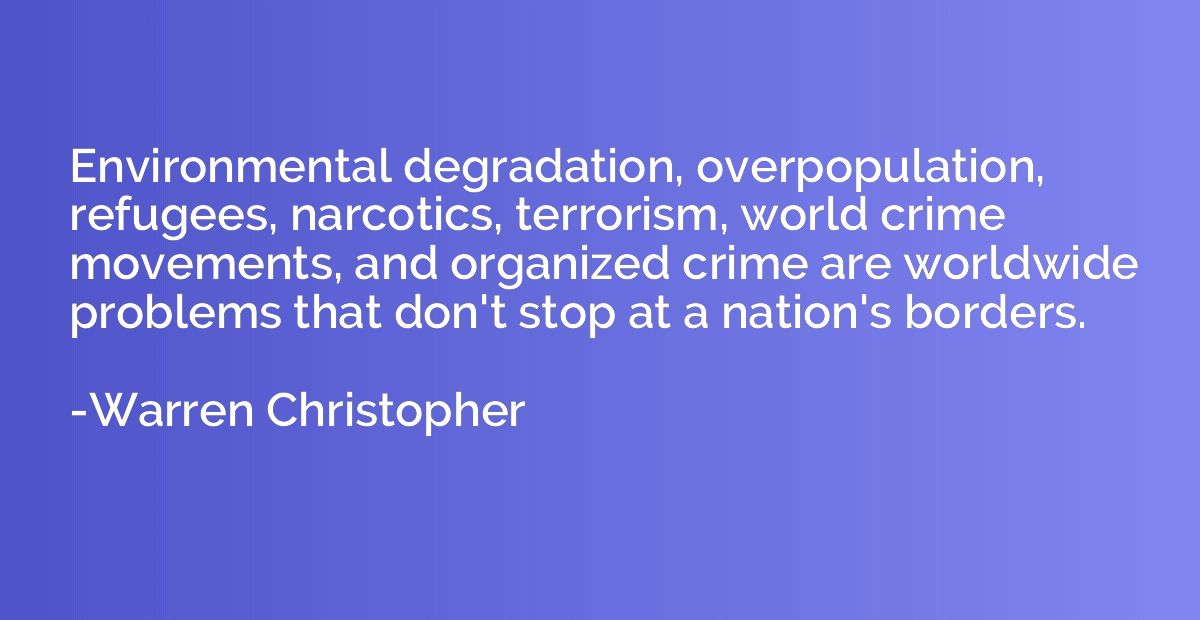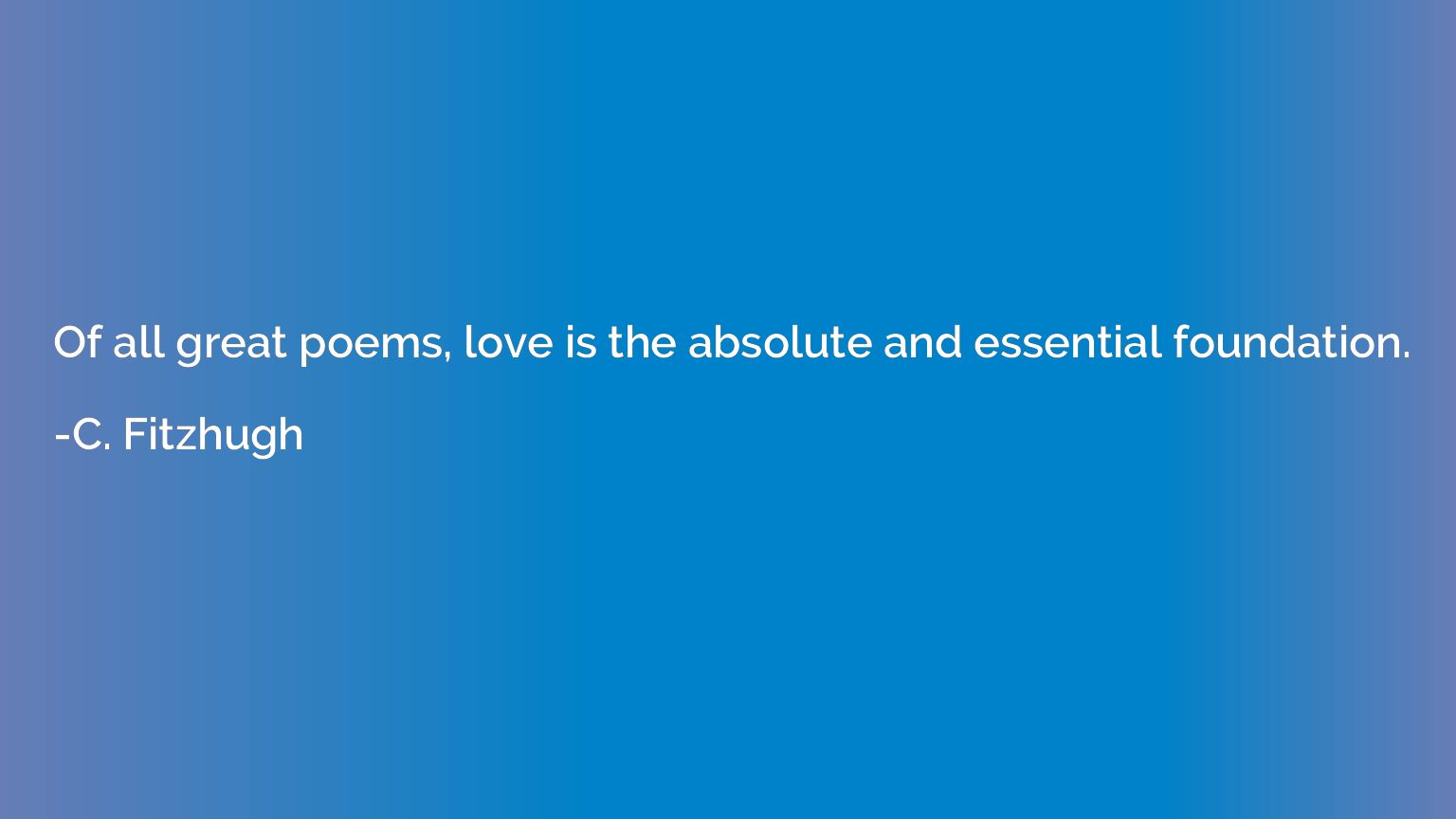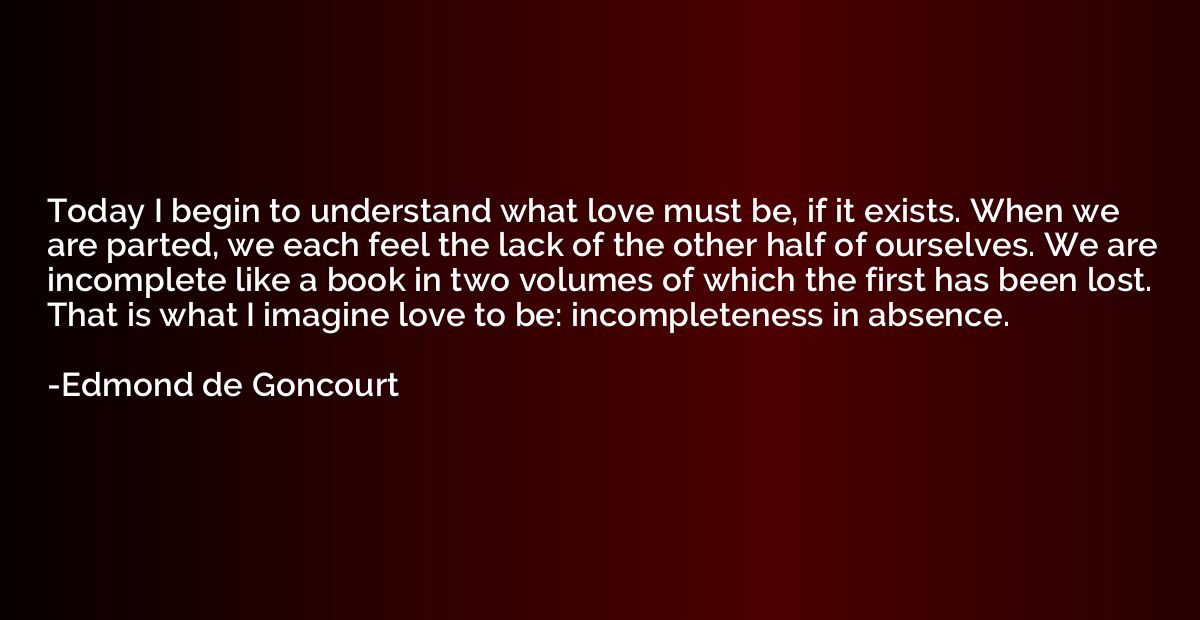Quote by Carl Gustav Jung
Loneliness does not come from having no people about one, but from being unable to communicate the things that seem important to oneself, or from holding certain views which others find inadmissible.
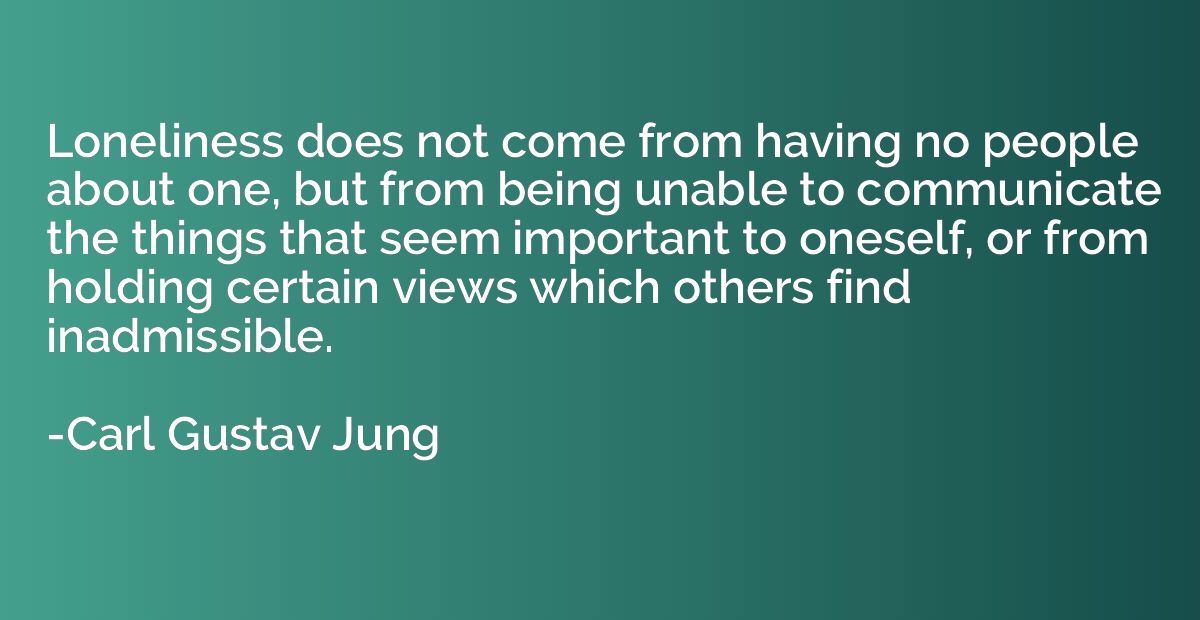
Summary
This quote highlights that loneliness is not solely determined by the presence or absence of people, but rather by the inability to effectively express one's thoughts and feelings or by holding beliefs that do not align with those of others. It suggests that true loneliness stems from a lack of understanding and connection with others, rather than a physical state of isolation. The quote emphasizes the importance of finding like-minded individuals with whom one can freely communicate and share important aspects of their identity and perspectives.



